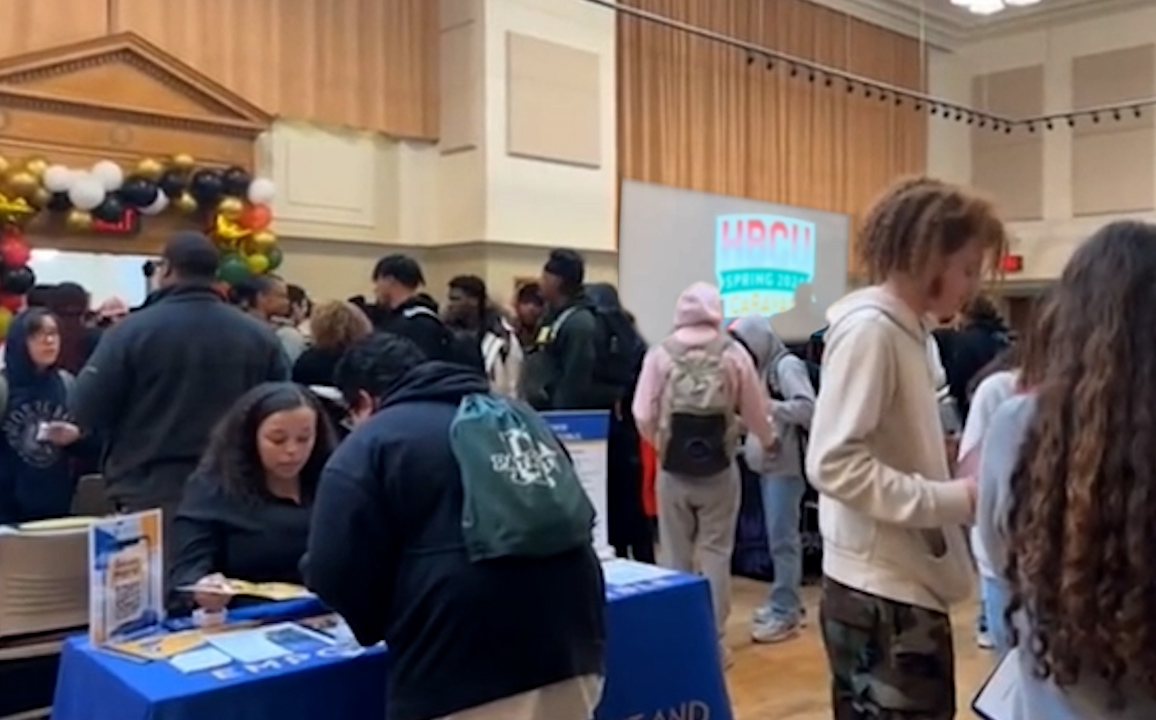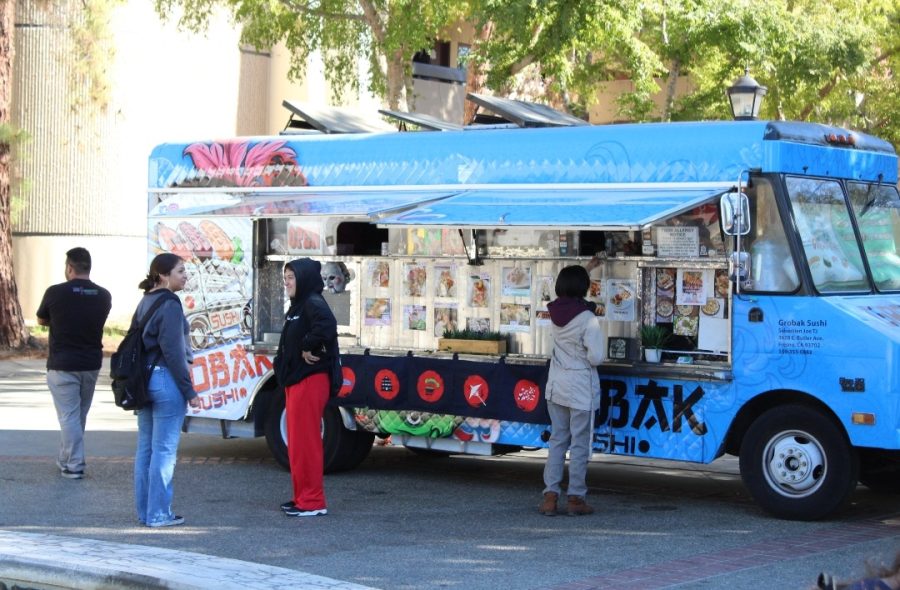“My being in Fresno is a result of God, my family, but most importantly, my survival” John Bul Dau explained. Standing at a little over six feet tall, his soft voice, squinty eyes, and graceful presence lit up a full FCC Theatre with his story of perseverance, struggle, and hope.
“Life’s stories are always meant to help other people” he began. A silent audience. John Bul Dau was a survivor; a “Lost Boy of Sudan” featured in the award winning documentary, “God Grew Tired of Us”.
He spoke to Fresno City students, faculty, and members of the community Sept 17-18 in an effort to touch their lives with his story of success, happiness, and peace.
John Bul Dau’s life’s trials and tribulations were a result of a civil war that took place in Africa from 1983 through 2005.
As a result of this civil war, he fled his home in Southern Sudan in an effort to save his life, and later, that of his family.
In his journey through political turmoil, sleepless nights, starvation, fear, disease, and death, he never lost one of the key elements important to his survival: his faith.
As a devout Christian man, John Bul Dau was able to overcome one of the most painful experiences of his life. While on campus, he shared his experience.
His story begins as a thirteen year old boy going to bed with a strange feeling. “I did not drink milk that night.” He recalled the moment that his village was under attack. “I went days with no food or water.” he continued, “I would eat grass, mud, and human urine…anything to keep me alive.”
Along with thousands of other boys whose villages were also attacked, they came together to escape the armed soldiers who were moving through southern Sudan.
The attempt of the Sudanese government, mostly controlled by Northern Arab-Muslims was to overtake and to an extent, convert Southern Sudanese Christians to Islam. Moreover, Southern Sudanese were persecuted because of their color, oil, and the resources present in the region.
The war in Africa took the lives of over two million people; left thousands of children orphaned, abandoned, were killed or lost their lives due to starvation, disease, dehydration, and loneliness.
Some children were eaten by crocodiles and hyenas, while many became insane. Seeing the number of children grow increasingly smaller as his journey continued out of southern Sudan, his “perseverance” kept him alive.
He stated, “Sometimes in life, you must accept whatever comes to you because God wants you to experience it, and is usually a result of him wanting you to learn.”
Though his attempts to return to Southern Sudan to be reunited with his family became an obstacle, John was presented with the opportunity to leave Africa entirely for a new life in the United States.
American troops that had visited Africa wanted to take many of the ‘lost boys’ to the United States for a chance at a new life and to escape the turmoil of the civil war in Africa.
In the year 2000, John was flown to Syracuse, New York, along with a few other ‘lost boys’ to start their new lives. In total, about 4,000 ‘lost boys’ and 98 ‘lost girls’ were dispersed in 38 U.S. states. He commented about some of the horror stories he heard about Americans.
“I didn’t know anything about the U.S.” he stated. The closest encounter he had with America was having a teacher who wore a shirt with scripted letters, U. S. A. “I used to call her USA (pronounced, Ooo-sa) he innocently stated. Giggles filled the audience. He also heard that to be lazy in America was “okay” and that the women were to be feared of.
“They told us that American women liked to carry small bags (purses) and if you make them mad, they will pull out a gun from those bags and shoot you” he stated.
Upon his arrival to the United States, he was greeted with a group of fourteen people from his church, but he was sure to keep his eyes out for the “women and their purses.”
John’s life began as quickly as the turn of a light switch. He took on 2-3 part time jobs at UPS, McDonalds, and as a Security Guard all while enrolled at the community college in Syracuse, New York. His goal was to finish his education.
In 2002, he finished his Associates Degree and is now enrolled at the University of Syracuse pursuing a bachelor’s degree in Public Policy.
He explained the difficulties of moving away from Africa to an entirely new and foreign country. The simple things, such as going to a grocery store, were fascinating to him.
He also commented on the concept of ‘choices’ which Americans have at their disposal. “In Africa, it’s not about choices; it’s what you get” he explained.
John also stated that one of the most difficult adjustments for him in the United States was overcoming “loneliness”. “In a Sudanese family, you have a large family living in one house and there is much interaction. In America, people don’t know each other walking down the street and they don’t often know their neighbor.”
Once John had adjusted to American life, he brought his sister and mother from Southern Africa to the United States which he “never stopped thinking about”. In an effort to thank the American people for their help in his life, he decided to give back.
He created the Sudanese Lost Boys Foundation and the American Care for Sudan Foundation which are dedicated to raising money in order to build medical clinics in Africa.
John has also written a book entitled, “God Grew Tired of Us” detailing his experiences of the civil war in Africa and coming to America. He proudly states, that he is living proof of the “American Dream”.
And indeed he is; with $415,000 raised to build a second medical clinic in Africa and many more developing projects on the way, his help to those in need, including more ‘Lost Boys’ who are still living in Africa wanting to come to America are situations he is looking into.
Currently, there is no program to bring more ‘Lost Boys’ to America and post-911 has made it difficult to bring many of them to American due to current immigration policies. John finds comfort in knowing that at the very least, there is peace in Sudan.
John Bul Dau is an inspiration to those that hear his story. His inspiration derives from his personal experience, persistence, and perseverance.
At this point in his life, the best words of advice to those around him, to college students, to Americans who hear his story, to Fresno City Students who heard his motivational speech at the Gym or at the theatre, one important aspect of life to always consider is that, “It is very important to struggle and to never give up. In life, if you want to succeed, you cannot give up; you must always struggle.”
Certainly, the experiences that John Bul Dau has experienced, we would never be able to fully understand for it is certain that it is beyond human understanding and comprehension as a living being in America.
Perhaps the largest message that can be taken from John’s experience is that “Things are only impossible when you fail to try.”



